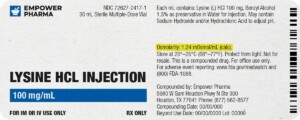Glutathione (GSH) is composed of three amino acids combined to produce a peptide that is both a powerful antioxidant and performs several critical roles in the body. According to researchers this peptide is so essential to optimum health that the level of Glutathione in cells could possibly be used to predict how long an organism lives.[1][2]
Glutathione catalyzes glutathione S-transferases (GST) and glutathione peroxidases (GPx). Thus, playing a role in detoxification by eliminating toxic electrophilic molecules and reactive peroxides. Glutathione plays a crucial role in a detoxification system that is fundamental in plants, mammals, and fungi.[3]
Aside from its detoxification role it is important for a variety of essential cellular reactions. Its presence in the glyoxalase system, is fundamental to DNA and RNA nucleotide reduction. Glutathione is also a constituent in the regulation of protein and gene expression, exchange reactions including thiol to disulfide ratios involve glutathione.[4]
Glutathione can exist intracellularly in either an oxidized (glutathione disulfide) or reduced (glutathione) molecular state. The ratio of reduced glutathione to glutathione disulfide has been shown to be critical in cell survival, this system is very tightly regulated.
Deficiency of glutathione puts the cell at risk for oxidative damage. An imbalance of glutathione is present in many pathologies including cancer, neurodegenerative disorders, cystic fibrosis (CF), HIV and aging.
While Glutathione is vitally essential to maintaining a healthy immune system, it isn’t classified as an essential nutrient; this is because the body does create its own supply from the amino acids:
L-cysteine
L-glutamic acid
Glycine
One of the reasons why Glutathione is so important for optimum health is that it’s present in every cell in the body. One way antioxidants like glutathione help maintain good physical health is by neutralizing free radicals, which can cause cellular damage through oxidation. Since glutathione is naturally present within all types of cells, it is in a prime position to do this. It’s considered one of the most important antioxidants in the human body.[5]



 Melatonin Capsules
Melatonin Capsules Arginine HCl Injection
Arginine HCl Injection Naltrexone HCl Capsules
Naltrexone HCl Capsules Bi-Amino Injection
Bi-Amino Injection NAD+ Injection
NAD+ Injection Omega 3 Fish Oil Capsules
Omega 3 Fish Oil Capsules Cholecalciferol (D3) Injection
Cholecalciferol (D3) Injection Bupropion HCl SR Tablets
Bupropion HCl SR Tablets Vitamin E Softgel Capsules
Vitamin E Softgel Capsules Modafinil Tablets
Modafinil Tablets